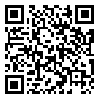
International Journal of Industrial Engineering & Production Research
Iran University of Science & Technology
Wed, Jul 16, 2025
[Archive]
Volume 35, Issue 4 (IJIEPR 2024)
IJIEPR 2024, 35(4): 42-59 |
Back to browse issues page
Download citation:
BibTeX | RIS | EndNote | Medlars | ProCite | Reference Manager | RefWorks
Send citation to:



BibTeX | RIS | EndNote | Medlars | ProCite | Reference Manager | RefWorks
Send citation to:
ristono A. Additive Ratio Assessment for Supplier Selection Using Compromise Weighting of Step Weight Assessment Ratio Analysis and The Method Based on Removal Effects of a Criteria: A Case Study in the Indonesian Leather Industry. IJIEPR 2024; 35 (4) :42-59
URL: http://ijiepr.iust.ac.ir/article-1-2100-en.html
URL: http://ijiepr.iust.ac.ir/article-1-2100-en.html
University of Pembangunan Nasional Veteran Yogyakarta , agus.ristono@upnyk.ac.id
Abstract: (1400 Views)
This paper proposes a decision-support model for supplier selection based on integrating the step weight assessment ratio analysis (SWARA), the method based on the removal effects of a criterion (MEREC), and Additive Ratio Assessment (ARAS) using a case study of the leather industry in Indonesia. The model starts by identifying the main criteria using the opinions of leather industry experts using Delphi. The second stage is to weigh them based on the main criteria, using compromising of objective and subjective weighting methods, namely MEREC and SWARA. The suppliers are selected and ranked based on the main criteria. Lastly, a sensitivity analysis will be performed to check the robustness. Delphi methodology adopted in this study gives managers in Indonesia's leather industries insights into the factors that must be considered when selecting suppliers for their organizations. The selected approach also aids them in prioritizing the criterion. Managers can utilize the supplier selection methodology suggested in this study to rank the suppliers based on various factors/criteria. This study makes three novel contributions to the supplier selection area. First, Delphi is applied to the Indonesian leather industry and integrates MEREC, SWARA, and ARAS into supplier selection. Second, sensitivity analysis allows the determination of the impact of modifications in the primary criteria on the ranking of suppliers and assists decision-makers in assessing the resilience of the process. Last, we find it essential to develop a simple methodology for managers of the Indonesian leather industry to select the best suppliers. Moreover, this method will help managers divide complex decision-making problems into more straightforward methodologies.
Type of Study: Research |
Subject:
Logistic & Apply Chain
Received: 2024/08/27 | Accepted: 2024/09/30 | Published: 2024/12/10
Received: 2024/08/27 | Accepted: 2024/09/30 | Published: 2024/12/10
Send email to the article author
| Rights and permissions | |
 | This work is licensed under a Creative Commons Attribution-NonCommercial 4.0 International License. |




